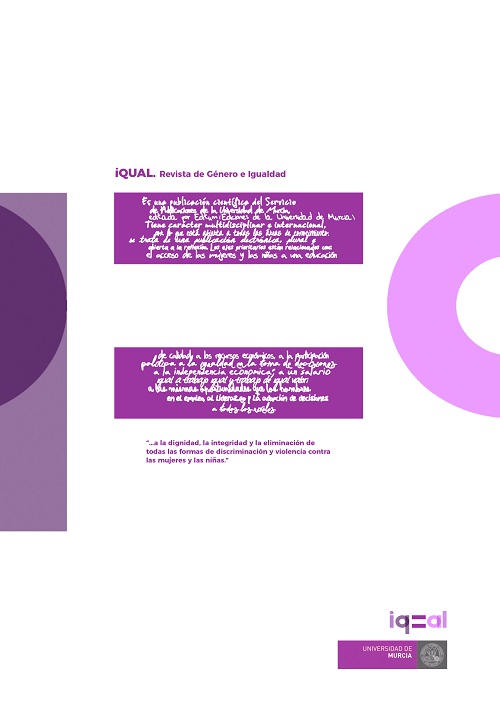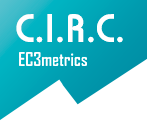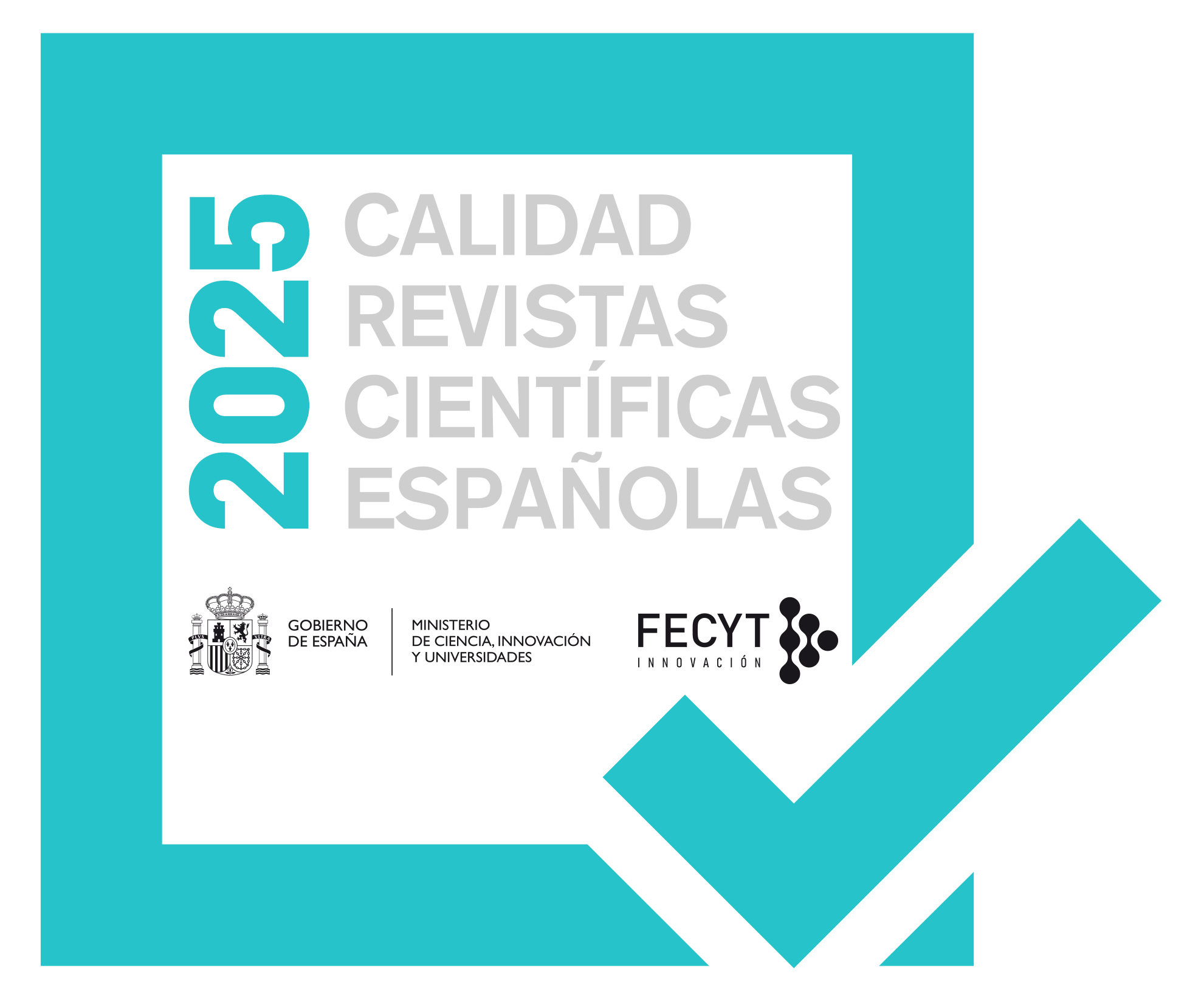El turismo como espejo sociocultural: estereoripos y representaciones de género
Resumen
A lo largo de los años, el turismo ha experimentado numerosas transformaciones, pero los estereotipos de género han permanecido arraigados, influenciando la percepción y experiencia de los y las turistas en destinos globales. Estas representaciones, evidentes en publicidad y marketing desde los inicios del turismo, no solo reflejan las normas culturales, sino que también las perpetúan. Las mujeres, a menudo retratadas como sumisas o como objetos de deseo, contrastan con las representaciones masculinas de aventura y dominio. Estos estereotipos, además de reforzar desigualdades, pueden tener consecuencias reales en términos de seguridad y bienestar. Sin embargo, se observa un crecimiento en el reconocimiento de la necesidad de abordar estos estereotipos en la industria turística, y por ende, el documento destaca la importancia de promover un turismo más inclusivo y equitativo, y sugiere que, al abordar activamente estos estereotipos, la industria puede avanzar hacia un futuro donde el turismo beneficie y respete a todos los y las participantes en el hecho turístico. En definitiva, este estudio resalta la imperativa necesidad de reconocer y combatir los estereotipos de género en el turismo para garantizar una industria más inclusiva, equitativa y sostenible.
Descargas
-
Resumen942
-
Pdf707
Citas
Aitchison, C. C. (2005). Feminist and gender perspectives in tourism studies: The social-cultural nexus of critical and cultural theories. Tourist studies, 5, 207–224.
Barry, K. (1996). The prostitution of sexuality. NyU Press.
Blackstock, K. (2005). A critical look at community based tourism. Community development journal, 40, 39–49.
Boley, B. B., Ayscue, E., Maruyama, N., & Woosnam, K. M. (2017). Gender and empowerment: Assessing discrepancies using the resident empowerment through tourism scale. Journal of Sustainable Tourism, 25, 113–129.
Boonabaana, B. (2017). A critical analysis of tourism, gender and poverty reduction. In Tourism and Poverty Reduction (pp. 187–278). Routledge.
Carr, N. (2016). Sex in tourism: Reflections and potential future research directions. Tourism Recreation Research, 41, 188–198.
Chambers, D., & Rakić, T. (2018). Critical considerations on gender and tourism: An introduction. Tourism, Culture and Communication, 18, 1–8.
Cornwall, A., & Anyidoho, N. A. (2010). Introduction: Women's empowerment: Contentions and contestations. Development, 53, 144–149.
Cuddy, A. J., Fiske, S. T., & Glick, P. (2008). Warmth and competence as universal dimensions of social perception: The stereotype content model and the BIAS map. Advances in experimental social psychology, 40, 61–149.
Dahles, H., & Bras, K. (1999). Entrepreneurs in Romancetourism in Indonesia. Annals of tourism Research, 26, 267–293.
Dankelman, I., & Davidson, J. (2013). Women and the Environment in the Third World: Alliance for the Future. Routledge.
Dann, G. M. (1996). Tourists' images of a destination-an alternative analysis. Journal of Travel & Tourism Marketing, 5, 41–55.
Doran, A. (2016). Empowerment and women in adventure tourism: A negotiated journey. Journal of Sport & Tourism, 20, 57–80.
Edensor, T. (2001). Performing tourism, staging tourism: (Re) producing tourist space and practice. Tourist studies, 1, 59–81.
Enloe, C. (2014). Bananas, beaches and bases: Making feminist sense of international politics. Univ of California Press.
Ferguson, L. (2011). Promoting gender equality and empowering women? Tourism and the third Millennium Development Goal. Current Issues in Tourism, 14, 235–249.
Figueroa-Domecq, C., & Segovia-Perez, M. (2020). Application of a gender perspective in tourism research: A theoretical and practical approach. Journal of Tourism Analysis: Revista de Análisis Turı́stico, 27, 251–270.
Foucault, M. (1978). Nietzsche, genealogy, history.
Frew, E. A., & Shaw, R. N. (1999). The relationship between personality, gender, and tourism behavior. Tourism Management, 20, 193–202.
Frohlick, S. (2021). The sex of tourism?: bodies under suspicion in paradise. In Thinking through tourism (pp. 51–70). Routledge.
Goffman, E. (1979). Gender advertisements.
Goodwin, H., & Francis, J. (2003). Ethical and responsible tourism: Consumer trends in the UK. Journal of Vacation Marketing, 9, 271–284.
Green, C. L. (1999). Ethnic evaluations of advertising: Interaction effects of strength of ethnic identification, media placement, and degree of racial composition. Journal of Advertising, 28, 49–64.
Hall, C. M. (1996). Gender and economic interests in tourism prostitution. The sociology of tourism: Theoretical and empirical investigations, 1, 265.
Henderson, K. A. (1994). Perspectives on analyzing gender, women, and leisure. Journal of Leisure Research, 26, 119–137.
Hudson, S., & Ritchie, J. B. (2006). Promoting destinations via film tourism: An empirical identification of supporting marketing initiatives. Journal of travel research, 44, 387–396.
Jeffreys, S. (2003). Sex tourism: do women do it too? Leisure studies, 22, 223–238.
Jiménez-Esquinas, G. (2017). “This is not only about culture”: on tourism, gender stereotypes and other affective fluxes. Journal of Sustainable Tourism, 25, 311–326.
Jordan, F., & Aitchison, C. (2008). Tourism and the sexualisation of the gaze: Solo female tourists’ experiences of gendered power, surveillance and embodiment. Leisure Studies, 27, 329–349.
Kabeer, N. (2005). Gender equality and women's empowerment: A critical analysis of the third millennium development goal 1. Gender & development, 13, 13–24.
Kay Hin Tan, K. (2018). The tourist gaze: leisure and travel in contemporary Societies. The tourist gaze: leisure and travel in contemporary Societies. Taylor & Francis.
Kinnaird, V., & Hall, D. (1996). Understanding tourism processes: A gender-aware framework. Tourism management, 17, 95–102.
Kinnaird, V., Kothari, U., Hall, D. R., & others. (1994). Tourism: gender perspectives. Tourism: a gender analysis., 1–34.
Kogovsek, M., & Kogovsek, M. (2015). Hospitality and tourism gender issues remain unsolved: A call for research. Quaestus, 194.
Koseoglu, M. A., King, B., & Rahimi, R. (2020). Gender disparities and positioning in collaborative hospitality and tourism research. International Journal of Contemporary Hospitality Management, 32, 535–559.
Larivière, V., Ni, C., Gingras, Y., Cronin, B., & Sugimoto, C. R. (2013). Bibliometrics: Global gender disparities in science. Nature, 504, 211–213.
Letherby, G. (2003). Feminist research in theory and practice. McGraw-Hill Education (UK).
Masquelier, A. (2005). Dirt, undress, and difference: critical perspectives on the body's surface. Indiana University Press.
Mayes, R. (2008). A place in the sun: The politics of place, identity and branding. Place branding and public diplomacy, 4, 124–135.
McRobbie, A. (1997). Back to reality?: Social experience and cultural studies. Manchester University Press.
Mooney, S. K. (2020). Gender research in hospitality and tourism management: time to change the guard. International Journal of Contemporary Hospitality Management, 32, 1861–1879.
Mosedale, J. (2010). Re-introducing tourism to political economy. In Political economy of tourism (pp. 1–13). Routledge.
Munar, A. M., & Jacobsen, J. K. (2014). Motivations for sharing tourism experiences through social media. Tourism management, 43, 46–54.
Nixon, S. (1997). Exhibiting masculinity. Representation: Cultural representations and signifying practices, 291–336.
Nunkoo, R., Hall, C. M., Ladsawut, J., & others. (2017). Gender and choice of methodology in tourism social science research. Annals of Tourism Research, 63, 207–210.
Pocock, N. S., & Phua, K. H. (2011). Medical tourism and policy implications for health systems: a conceptual framework from a comparative study of Thailand, Singapore and Malaysia. Globalization and health, 7, 1–12.
Pritchard, A. (2001). Tourism and representation: A scale for measuring gendered portrayals. Leisure studies, 20, 79–94.
Pritchard, A., & Morgan, N. J. (2000). Privileging the male gaze: Gendered tourism landscapes. Annals of Tourism Research, 27, 884–905.
Pruitt, D., & LaFont, S. (1995). For love and money: romance tourism in Jamaica. Annals of tourism research, 22, 422–440.
Rasoolimanesh, S. M., Khoo-Lattimore, C., Md Noor, S., Jaafar, M., & Konar, R. (2021). Tourist engagement and loyalty: gender matters? Current Issues in Tourism, 24, 871–885.
Rhoten, D., & Pfirman, S. (2007). Women in interdisciplinary science: Exploring preferences and consequences. Research policy, 36, 56–75.
Scheyvens, R. (2000). Promoting women's empowerment through involvement in ecotourism: Experiences from the Third World. Journal of sustainable tourism, 8, 232–249.
Scheyvens, R. (2002). Tourism for development: Empowering communities. Pearson Education.
Scheyvens, R., & Momsen, J. (2008). Tourism in small island states: From vulnerability to strengths. Journal of sustainable tourism, 16, 491–510.
Selwyn, T. (2018). Peter Pan in South-East Asia: views from the brochures. In Tourism in South-East Asia (pp. 117–137). Routledge.
Sen, A. (2001). The many faces of gender inequality. New republic, 35–39.
Sinclair, M. T. (1997). Gender, work and tourism. Psychology Press.
Swain, M. B. (1993). Women producers of ethnic arts. Annals of Tourism Research, 20, 32–51.
Swain, M. B. (1995). Gender in tourism. Annals of tourism research, 22, 247–266.
Taylor, J. S. (2006). Female sex tourism: a contradiction in terms? Feminist review, 83, 42–59.
Telfer, D. J., & Sharpley, R. (2015). Tourism and development in the developing world. Routledge.
Tucker, H. (2007). Undoing shame: Tourism and women's work in Turkey. Journal of Tourism and Cultural change, 5, 87–105.
Tung, V. W., King, B. E., & Tse, S. (2020). The tourist stereotype model: Positive and negative dimensions. Journal of Travel Research, 59, 37–51.
Valentine, P. S. (1993). Ecotourism and nature conservation: A definition with some recent developments in Micronesia. Tourism management, 14, 107–115.
Veijola, S., & Jokinen, E. (1994). The body in tourism. Theory, culture & society, 11, 125–151.
West, J. D., Jacquet, J., King, M. M., Correll, S. J., & Bergstrom, C. T. (2013). The role of gender in scholarly authorship. PloS one, 8, e66212.
Williamson, J. (1978). Decoding advertisements (Vol. 4). Marion Boyars London.
Yang, E. C., Khoo-Lattimore, C., & Arcodia, C. (2017). A narrative review of Asian female travellers: Looking into the future through the past. Current Issues in Tourism, 20, 1008–1027.
Derechos de autor 2024 Servicio de Publicaciones Universidad de Murcia

Esta obra está bajo una licencia internacional Creative Commons Atribución-NoComercial 4.0.









